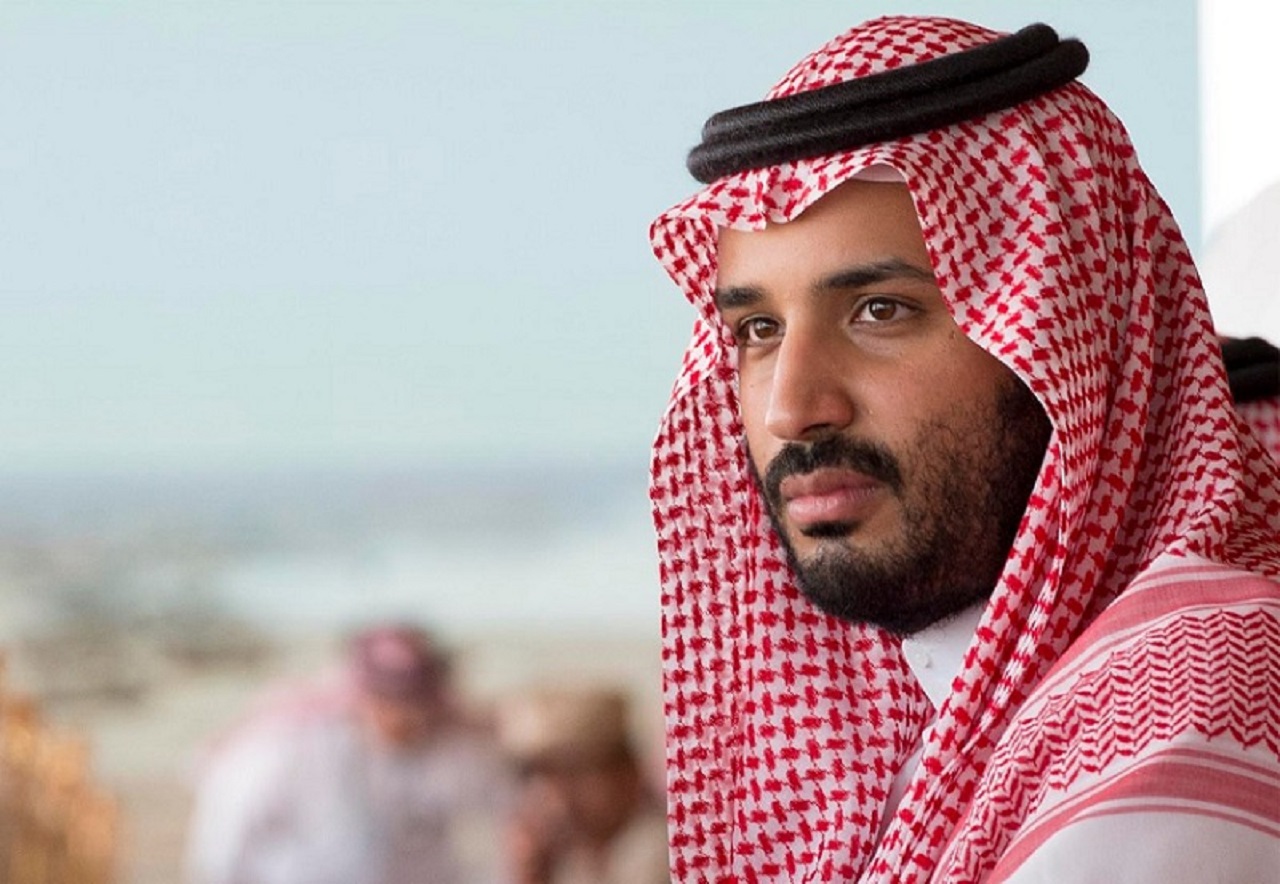The assassination of Jamal Khashoggi was no aberration. A Vanity Fair investigation reveals how Saudi Arabia attempts to abduct, repatriate—and sometimes murder—citizens it regards as enemies of the state.
DÜSSELDORF
Prince Khaled bin Farhan al-Saud sat in one of the few safe locations he frequents in Düsseldorf and ordered each of us a cup of coffee. With his close-cropped goatee and crisp gray suit, he looked surprisingly relaxed for a hunted man. He described his constant fear of being abducted, the precautions he takes when venturing outside, and how German law enforcement officials routinely check on him to make sure he is all right.
Recently, bin Farhan, who rarely grants interviews to Western reporters, had incensed the kingdom’s leaders with his calls for human rights reforms—an unusual grievance for a Saudi prince. What’s more, he spoke openly of his desire to establish a political movement that might eventually install an opposition leader, upending the kingdom’s dynastic rule.
As we sat over coffee, he relayed a story that at first sounded innocuous. One day in June 2018, his mother, who lives in Egypt, called him with what she thought was good news. The Saudi Embassy in Cairo had contacted her, she said, and had a proposal: The kingdom wanted to mend relations with the prince and was willing to offer him $5.5 million as a goodwill gesture. Since bin Farhan was struggling financially (reportedly due, in part, to a dispute with the ruling family), his mother welcomed this chance for a reconciliation. But as tempting as the overture was, he claimed he never considered it seriously. And when he followed up with Saudi officials, he realized the deal had a dangerous catch. They had told him he could collect his payment only if he personally came to a Saudi embassy or consulate. That immediately set off alarm bells. He declined the offer.
Two weeks later, on October 2, 2018, bin Farhan saw a startling news report. Jamal Khashoggi—the Saudi Arabian journalist and Washington Post columnist who had been writing articles critical of his homeland and working clandestinely to undermine some of the government’s social media initiatives—had gone to the Saudi consulate in Istanbul to pick up paperwork required for his pending marriage. Minutes after his arrival—as revealed in leaked audiotape transcripts compiled by Turkish authorities—Khashoggi was tortured and strangled by a Saudi hit squad. His body was then presumably carved up with a bone saw, the remains later carted away. The assassination was condemned by nations around the world, though Donald Trump, Jared Kushner, and others in the Trump administration are still on close terms with the Saudi leadership and have continued to conduct “business as usual” with the kingdom. In June, in fact, President Trump hosted a breakfast for Mohammed bin Salman, the country’s crown prince and de facto leader, and at a press session went out of his way to praise him: “I want to congratulate you. You’ve done a really spectacular job.”
Among those present at the consulate the day Khashoggi was killed was Maher Abdulaziz Mutreb, a close aide to Mohammed bin Salman, colloquially referred to as M.B.S., who since 2015 has been steadily consolidating power. Mutreb, according to the transcripts, made multiple calls during the ordeal, possibly to Saud al-Qahtani, the kingdom’s cybersecurity chief and overseer of clandestine digital operations. He may have even phoned M.B.S. himself, who was singled out this spring in a scathing U.N. report, which found “credible evidence” that he was likely complicit in Khashoggi’s “premeditated execution”—an accusation the country’s minister of state for foreign affairs called “baseless.” Mutreb—well-known in diplomatic circles, and one of the advisers who accompanied M.B.S. on his high-profile visit to the United States last year—gave a particularly chilling sign-off: “Tell yours: The thing is done. It’s done.”
Bin Farhan was dumbstruck as he watched television news shows and saw surveillance-camera footage of Khashoggi’s last hours alive. The prince realized all too clearly: By refusing to go to a Saudi consulate to pick up his payment, he might have narrowly avoided a similar fate.
MONTREAL
Omar Abdulaziz, like bin Farhan, is a Saudi dissident. An activist living in Canada, he had been an associate of Khashoggi’s. Together, they had planned to publicize the plight of the kingdom’s political prisoners and tried to sabotage the Saudis’ online propaganda efforts by sending out anti-government videos, mobilizing followers, and devising social media schemes to counterprogram messages posted by the regime.
Abdulaziz met me in a Montreal hotel where, the previous year, he had been living in hiding. He recounted aspects of an incident he had not discussed in great detail before. In May 2018, he said, two representatives of the royal court had shown up in Canada, bearing a message from M.B.S. The pair, accompanied by Abdulaziz’s younger brother Ahmed, a Saudi resident, arranged a series of rendezvous in Montreal cafés and public parks. They encouraged him to stop his activism and return home, urging him to visit the Saudi Embassy to renew his passport. The implicit understanding, he told me, was that if he continued with his political activities, his family might be endangered.
Over the course of their discussions, however, Abdulaziz became convinced that his brother was under duress from his Saudi companions. He recorded their conversations. He decided to turn down their offer. But his choice, he acknowledged, came with a heavy price. When his brother returned to the kingdom, according to Abdulaziz, he was put in jail, where he supposedly remains to this day. A month after his brother’s visit—and four months before Khashoggi’s murder—Abdulaziz discovered that his phone had been hacked, compromising sensitive plans he had been developing with Khashoggi.
Saudi officials did not answer VANITY FAIR’s questions about whether the kingdom attempted to forcibly repatriate Omar Abdulaziz and several others mentioned in this report. Moreover, neither the Saudi government nor the Saudi Embassy in Washington, DC, responded to multiple requests for comment about the disappearance and detention of various Saudi citizens referred to herein.
AL-TAIF
Yahya Assiri didn’t make much of it when the phone rang that morning in 2008. It was a high-ranking military officer summoning him to an urgent meeting at his office at the al-Taif Air Force base. Such calls were common for Assiri, a trusted logistics and supply specialist in the Royal Saudi Air Force.
Assiri, though stationed at al-Taif, had made a habit of venturing off base to visit the nearby markets and meet local farmers and traders who, like their ancestors, savored the temperate climate of their village, nestled in the slopes of the Sarawat Mountains. His sojourns, however, had also opened his eyes to the country’s rampant poverty. And Assiri, troubled by the economic hardship and disparity around him, began to spend his evenings signing into online chat rooms. He would post his evolving beliefs about social injustice, government corruption, and the harsh realities of life under the rule of the Saudi royal family.
Visiting chat rooms was not forbidden at the time. Social media was still in its infancy in much of the Arab world, and citizens sought out such forums as a way to carve out a space for public discourse, an avenue that was unavailable through state-controlled TV or radio. In the chat rooms, Assiri met other like-minded Saudis and, on occasion, they moved their friendships and their dissident views offline, meeting at each other’s houses and forging deep bonds—far from the watchful eye of the state. Or so they thought.
The day his superior called him to his office, Assiri dutifully donned his military fatigues and went over to base headquarters. “Yahya!” the general said as Assiri arrived. “Have a seat.”
He did so, but not before stealing a quick glance at the general’s desk and spotting a classified folder labeled “ABU FARES.” The general asked him, pointedly, “Do you know how to use the internet well?”
“My wife occasionally uses it for recipes, but for the most part I don’t know how.”
The general grabbed the folder and began to thumb through it. “I received this file from the General Investigations Office, and it contains a lot of posts and online articles written by someone with the username Abu Fares. He is criticizing the kingdom. They told me they suspect that you are the one writing these articles.” He asked him, point-blank: “Are you Abu Fares?”
Assiri vehemently denied he was the author, but the general continued interrogating him. After a while, he backed off, seemingly persuaded of Assiri’s innocence. Al-Taif’s top brass, Assiri later learned, apparently believed the denials as well. As he left the office that day, he set a plan in motion. He applied for a military training program in London. He stashed away personal savings. And he submitted his resignation from the Air Force—a rarity, given the stature and income afforded military officers in Saudi society. Within 12 months of that fateful meeting, Assiri and his wife would leave their parents and siblings behind and depart for England, where he began a new life. He may have been 3,000 miles from Riyadh, but he was not beyond the kingdom’s reach.
Redazione
La redazione di Babilon è composta da giovani giornalisti, analisti e ricercatori attenti alle dinamiche mondiali. Il nostro obiettivo è rendere più comprensibile la geopolitica a tutti i tipi di lettori.
Dall’origine straniera all’icona americana: il fenomeno dello sport negli Usa
14 Mar 2024
Molti sport americani sono accomunati da un aspetto particolarmente curioso: raramente sono davvero nati sul suolo…
Roulette europea, francese o americana? Ecco un approfondimento
22 Set 2023
La roulette è un classico intramontabile dei casinò, amata da milioni di appassionati in tutto il mondo. Una delle…
Conto corrente online: perché è la soluzione migliore per i più giovani
21 Ott 2022
I millennial e i nativi digitali hanno dimostrato di essere una forza in grado di cambiare le carte in tavola nel…
L’intrattenimento online è dei casinò
31 Ago 2022
Il mondo dell’intrattenimento è vasto e ricco di opzioni. Con l’avvento di internet, poi, il settore non fatto altro…




